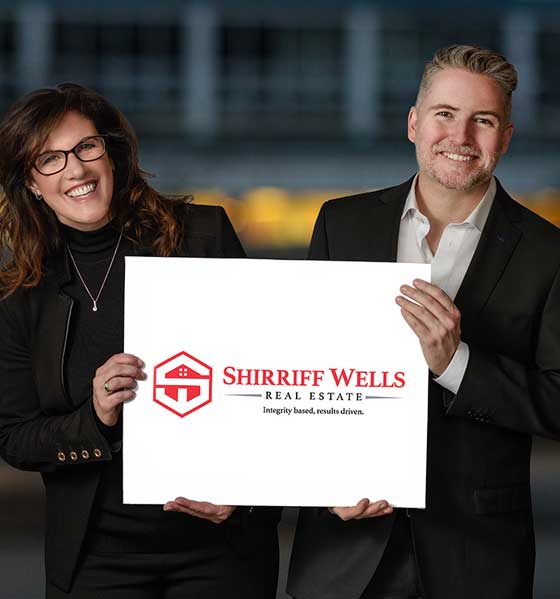Are you a first-time buyer? Great! A seasoned investor? Awesome. Either way, the Shirriff Wells team offers years of experience and a wealth of knowledge to guide you through the process and ensure you get the best value for your budget.
THEShirriff Wells Advantage
More often than not, it’s the homes that pick their people. It’s a competitive market, and we understand that sometimes buyers have difficulty finding value in the homes they visit during their search. At Shirriff Wells, we believe that patience combined with a keen sense for identifying great opportunities is the key to a successful home buying experience.

Rent vs Own – what can I afford?
As a homeowner, you can reasonably expect the equity in your home to increase over time as your mortgage is paid down. That, combined with a regular appreciation of property values, can be a rapid and rewarding way to increase your net worth.
In contrast, the person renting over the same amount of time is left with no property investment but may have enjoyed lower living expenses and the chance to invest in other opportunities. To compare owning to renting, you have to add up all of the figures; the cost of your home, size of your down payment, utilities, immediate repairs, interest rates, and insurance, and compare them with how much you are currently spending on rent. There is also a value in the enjoyment and satisfaction that you will derive from owning your own home. As your Realtor, we’ll help you weigh the pros and cons and offer guidance on whether or not to buy now, or wait and save for a larger downpayment.
How much should I have for a down payment?
The size of a down payment can vary. Depending on the type of mortgage, down payments generally range from 5% to 20% of the purchase price.
To obtain a conventional mortgage, home buyers are required to put down at least 20% of the purchase price or appraised value (whichever is less) as a down payment. If you don’t have the necessary time or resources to save a full 20% down payment, you can choose a high-ratio mortgage and buy a home with a down payment of as little as 5%. This option is called a high-ratio mortgage and it requires you to purchase default insurance. Whether you choose a conventional or a high-ratio mortgage, one thing is almost always certain: the larger your down payment, the more you save in the long run.

STARTINGYour property search
Now that you have a better understanding of what you can afford, it’s time to start your search. Whether you’re currently in the market for a Realtor (you’ve come to the right place!) or want to casually browse on your own, our site is an excellent resource to start looking.
Hiring a Realtor is more than just employing a tour guide to take you to view potential properties. As Realtors we are experienced in arranging fair deals and will assist you in negotiating your offer, acting as a mediator to head off potential conflicts between you and the seller, and we will draw up a legally binding agreement that protects your interests.

What would you like to search for?

MEETShirriff Wells
With over 40 years of combined real estate experience, Andrew and Lisa have helped hundreds of clients purchase their dream homes and get the most value for their properties when selling. Through successfully renovating and selling several of her own projects, Lisa has a trained eye for presentation and property enhancements, and her background in building and construction is a critical asset in preparing a property to go to market. She is a firm negotiator with a soft touch for handling delicate sales and situations. When acting in a purchasing capacity, Andrew has a strong track record of interpreting sales data to identify exceptional buying opportunities for his purchasers. He is a marketing professional and a purchasing specialist with years of experience in a variety of sales-based roles.
When they aren’t closing their next deal, you can find Andrew and Lisa actively participating in their communities. Both Andrew and Lisa are supporters of the Terrequity Children’s Foundation, and support various charitable events throughout the calendar year.
OTHER COSTSAssociated with your purchase
Now that you’ve found your perfect home, it’s time to make an offer. You’ve saved and budgeted and are able to come up with the downpayment – congrats!
However, purchasing a property is more than just the initial payment and a mortgage. In addition to these, there are a few other costs associated with your home, such as taxes, insurance, etc.


Costs to consider when purchasing a property
Title Insurance
The title is the legal term for ownership of property. Buyers want a “good and marketable” title for a property – a good title means a title appropriate for the buyer’s purposes; a marketable title means a title the buyer can convey to someone else. Prior to closing, public records are “searched” to determine the previous ownership of the property, as well as prior dealings related to it. The search might reveal, for example, existing mortgages, liens for outstanding taxes, utility charges, etc., registered against the property. In closing, the buyer expects property that is free of such claims. So, normally they must be cleared up before closing. For example, the seller’s mortgage will be discharged and outstanding monetary expenses (such as taxes and utility charges) will be paid for (or adjusted for) at closing.
Land Transfer Tax
Land transfer taxes are based on the amount of consideration paid for the property at the time of closing. In some instances Land Transfer Taxes can be deemed to be at the “fair market value of the land”, but generally speaking they are based on the sale price of the property.
Use our handy calculator HERE to estimate how much you could pay in Land Transfer Tax for the property you want to purchase. It might also be beneficial to speak with a financial advisor or an experienced mortgage broker ahead of time to plan how you will financially cover these costs. Often your advisor, if experienced in investment properties, will have a couple of tips for you on where you can save costs.
HST
HST is payable on the purchase of newly constructed homes only. If you are purchasing a new home make sure you know who pays for this, you or the builder. On the offer, the purchase price will say “Plus HST” or “HST Included” and who gets any HST rebates? Many builders have included this cost into the purchase price. Thus, the buyer does not have to come up with it at closing.
Closing Costs
Closing costs are a list of charges your lawyer presents to you on the closing date of your home. Many people are surprised at the additional costs over and above the price of the home. According to the CMHC and Genworth Financial you should have at least 1.5% of the purchase price for closing costs in addition to the down payment (have around 2.5% to be on the safe side). The costs vary among provinces and cities. An estimate should be made for closing adjustments for bills the seller has prepaid such as property taxes, utility bills, and other charges. Any bills after the closing date are the responsibility of the purchaser. A lawyer will let you know what they are once the various searches have been completed.
Additional Costs
Home Inspection Fee
A professional inspection of the home, top to bottom, is for the benefit of the buyer. A home inspection can cost anywhere from $400 – $500 and is well worth the investment. When hiring a home inspector make sure the inspector has liability insurance just in case they overlook something.
Fire Insurance
Mortgage lenders require a certificate of fire insurance to be in place from the time you take possession of the home. The amount required is generally the amount of the mortgage or the replacement cost of the home. This cost can vary on the property size, amount of coverage, the insurance company and the municipality. The cost can vary anywhere from $250-$600 annually for most properties.
Provincial Sales Tax on Mortgage Insurance
If you have insurance for your mortgage, (CMHC or Genworth Financial), then you will pay the applicable taxes on the insurance premium on closing. While you can add the insurance premium to the mortgage amount, you must pay the tx at closing.
Land Survey Fee or Title Insurance Fee
Lenders usually require a recent survey of the property. If one is not available the cost can start at $1500 for a new survey. In lieu of the survey most lenders today will accept title insurance which can cost considerably less.
Legal Costs and Disbursements
Lawyers and notaries charge fees for their services involved in drafting the title deed, preparing the mortgage, and conducting the various searches. Disbursements are out-of-pocket expenses incurred during the process such as registrations, searches, and supplies.
New Home Warranty
In most provinces, new homes are covered by a new home warranty program. The cost to the purchaser for this warranty is approximately $600. Generally, should the builder default or fail to build to an agreed-upon standard the fund will finish or repair the deficiencies to a maximum amount. For more information on Ontario’s new home warranty visit tarion.com.




